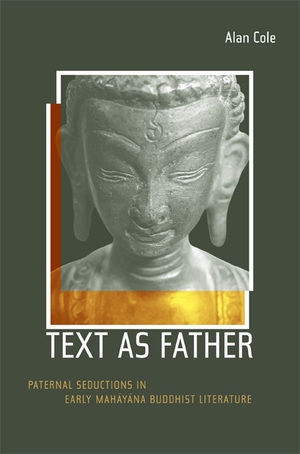- Acknowledgmentsxi
- Introduction1
- 1. Text as Father25
- 2. Who's Your Daddy Now? Reissued Paternity in the Lotus Sūtra48
- 3. The Domino Effect: Everyone and His Brother Convert to the Lotus Sūtra99
- 4. "Be All You Can’t Be" and Other Gainful Losses in the Diamond Sūtra160
- 5. Sameness with a Difference in the Tathāgatagarbha Sūtra197
- 6. Vimalakīrti, or Why Bad Boys Finish First236
- Conclusion: A Cavalier Attitude
- Toward Truth-Fathers327
- Bibliography347
- Index351

